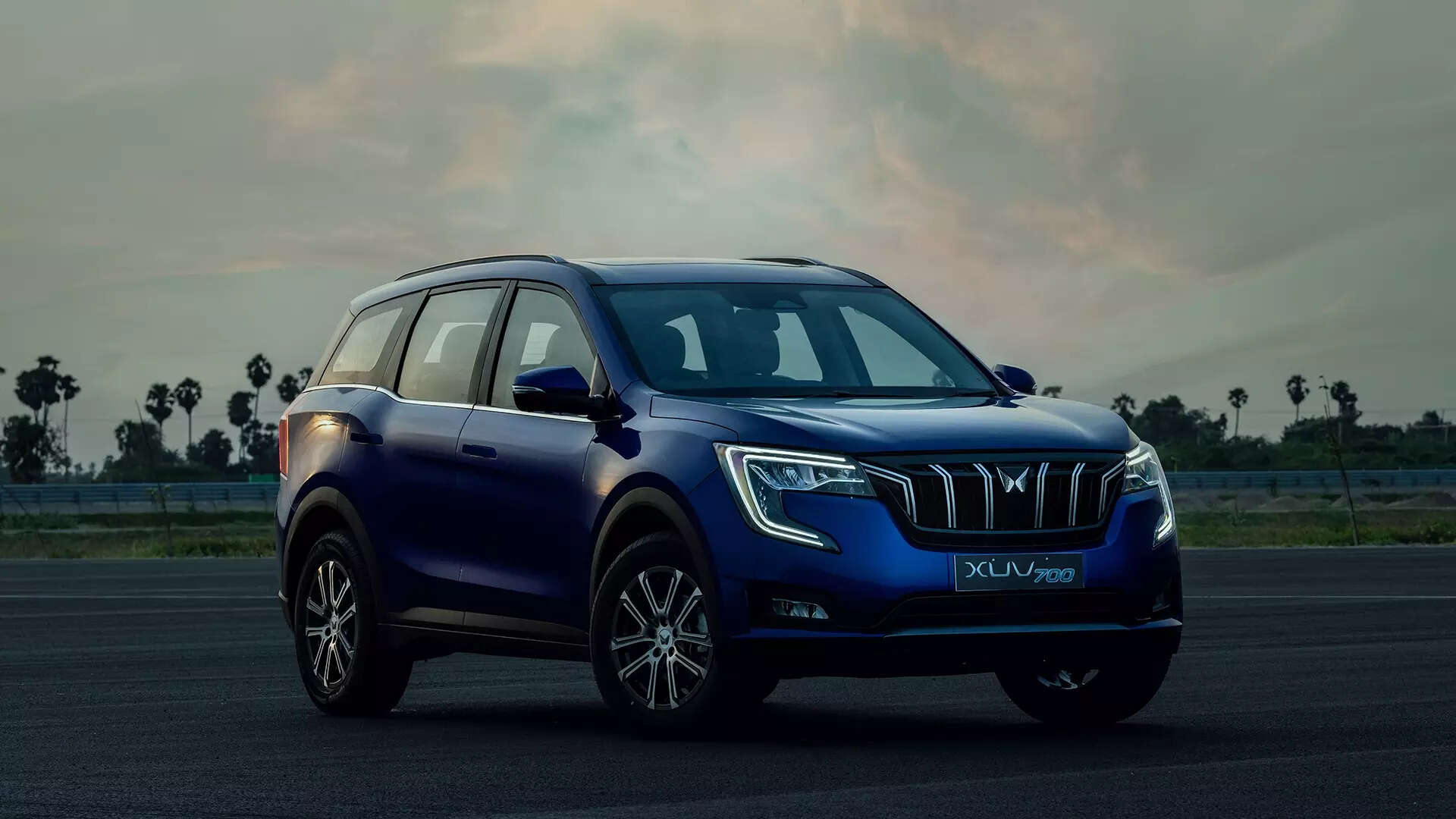 When Shivanand Hegaje, an engineer from Navi Mumbai, logged in to book the new Mahindra & Mahindra XUV700 on October 7, he was surprised to see they had all been snapped up within an hour of the start.
When Shivanand Hegaje, an engineer from Navi Mumbai, logged in to book the new Mahindra & Mahindra XUV700 on October 7, he was surprised to see they had all been snapped up within an hour of the start.The company had offered an initial 25,000 bookings at a lower price. “A small delay cost me ₹50,000,” Hegaje rued.
Even the next 25,000 units, without the incentive, were booked in two hours.
But Hegaje was better prepared this time for the 10 am opening. “The next day, I was ready at 9:45 am – it has become like a flash sale on Flipkart,” he said.
This underlines the SUV frenzy that has gripped Indian buyers following the pandemic. Despite long waiting periods, people are queuing up, especially at the top end.
The response for the XUV700 was similar to much-awaited global models such as the Ford F150 Lightning or the Tesla Cyber Truck, said Ravi Bhatia, president at auto consultancy firm Jato Dynamics India.
- High demand for new cars, shortage of production result in record bookings
- 500,000: More than half million pending bookings for new cars, twice normal
- 2-3 weeks: New car stock available with dealers, half the normal time
- Rs 35,000 crore: Estimated value of pending orderbook
- Duplicate and induced bookings may have driven up numbers, experts warn
- There is also an element of using booking numbers as a marketing tactic
“It clearly suggests there is an appetite for well-equipped, upper-segment SUVs in the Indian households that are looking forward to getting back to the business of life after a gap of nearly two years,” Bhatia said. “Despite the booking amount being 2.8 times higher, the XUV700 has managed to garner 50,000 bookings within the first two days.” Seasonal Rush
The booking amount for the XUV700 was Rs 21,000, about thrice the dollar equivalent for the Ford SUV.
The bookings add to the long queue of over 500,000 customers forced to wait longer for their cars than normal, due to the global shortage of semiconductors. This translates into an order backlog of ₹35,000 crore.
There has been a similar booking blitz in the premium two-wheeler space – the much-hyped Ola Electric scooter got orders worth ₹1,100 crore in just two days, the company said.
Demand vs Supply
Quick deliveries depend on automakers’ ability to secure parts ahead of key festivals in the run-up to Diwali. Many buyers look to take possession of their new wheels during the auspicious festive season.
Traditionally, the car market has pending bookings of 230,000-250,000 units, with four to six weeks of channel stock. The current order book is more than double that while the channel stock is almost half, accentuating the shortage amid production cuts.
The waitlist could be a reflection of increased demand, decreased supply, or a combination, said Shashank Srivastava, senior executive director, sales and marketing, Maruti Suzuki, the country’s biggest car maker. “Pending bookings are at a historic high, while demand is reasonably strong, but not unprecedented by the festive season benchmark,” he said. “The high pending bookings are more a reflection of supply side constraints that are related to the semiconductor shortage issue.”
To be sure, the numbers cannot always be taken at face value, experts said.
Wheels Within Wheels?
When waiting periods lengthen, there is a tendency on the part of prospective buyers to make multiple bookings – either for the same vehicle with different dealers or competing brands – to get faster delivery.
Some said there may be a fair share of so-called induced bookings – those made by people at the behest of others, especially vehicle dealers, who want to improve their chances of getting higher allocations during the ongoing supply shortage.
The fact that the booking fee is refundable in most cases doesn’t help either.
“The current situation is such that we are going back to the days when people used to make speculative bookings of Maruti vehicles,” said Avik Chattopadhyay, an automotive industry consultant.
There is also an element of using booking numbers as a marketing tactic. “Booking numbers have been used as a tool to underscore the success of a model. However, all models do witness cancellations and cross bookings, no matter how popular they are,” said an industry executive at a multinational.

















